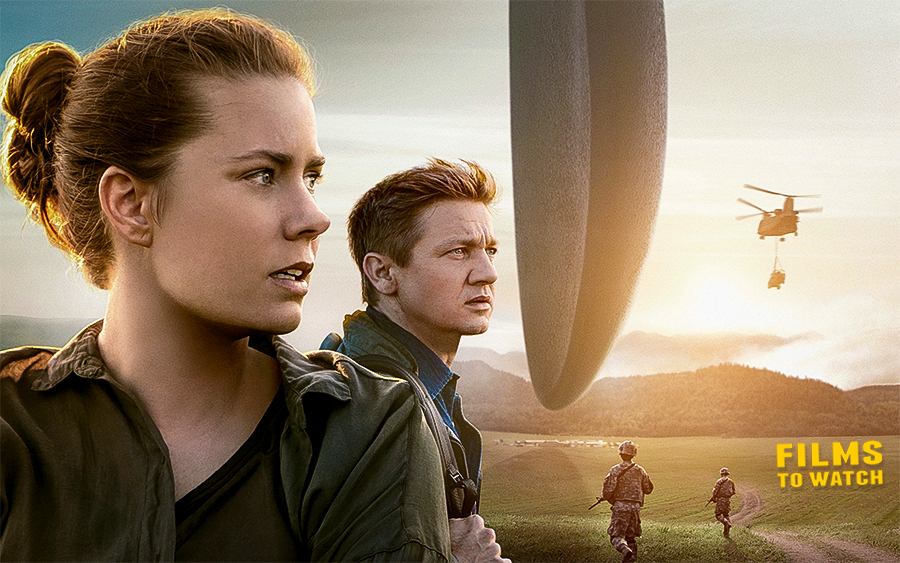Arrival — A Retrospective
From the first frame of ‘Arrival’ you feel like you’re in for a serious and deep exploration of the mystical and philosophical implications if aliens, beyond our technological capabilities, ever visited us. But the approach is science and linguistics, to understand the what ifs and not the usual taken for granted approach of the mystical (Marvel/DC movies). This is where this feels fresh. The almost transcendental qualities of this film comes from the real time showcasing of events with hypnotic music.
One can enjoy every second of the camera work. Every second of it. The wide shots to allow us entry to the world of the character, the little time she spends in her apartment opening her door and keeping the keys or as she talks on the phone is crucial. Everyone’s heard the buzz about how good Amy Adams is in the film but I felt this was purely a three-person show. The director, cinematographer and music composer all excelled in their ways. The editing falls just a smidge. One realizes when one watches a movie like Arrival how difficult it is to hold onto one tone and be constantly engaging and simulating but it manages that in the form of excellent direction. The cinematography is the most satisfying mix of, geometric and industrial yet inspired and essentially the tool telling the story, I’ve seen this year. I bet Oscar nomination if not the win. The music is not memorable yet fits in as an experiential device.
Spoilers Ahead:
So let’s not deal with the science fiction of it. There are time paradoxes and loopholes if you go too much into the why’s of the plot. The plot’s weak but the message and the visual narration is very strong. The first contact section of the screenplay is the strongest and we connect with the character of Amy Adams immediately. The underdog, the linguistics professor in a class where the kids hardly seem to care with their gadgets and relationships to hold their attention, who’s had a kid taken away from her by death are all things we relate to somewhere with someone we’ve seen in real life. She’s called upon by the CIA to decode and ask the big question from the aliens. What is your purpose of coming to earth? She feels important and overcomes fear and in the end becomes at peace with who she is and what she wants. That’s the essence of the film. Also how language plays a part in the international trade and political scheme of things and how we as humans treat each other due to different languages and how we’re crippled by the issues of the past. These are ambitious themes that are tackled within a story following “Louise” (Amy Adams) all the way through, going further in time and backwards in a flashy/dreamy loop of things that the writer of the book wants.
“Story of Your Life” is a science fiction short story, on which the film is cased, by Ted Chiang. It was the winner of the 2000 Nebula Award for Best Novella as well as the 1999 Sturgeon award.
“So many of our conflicts and our problems stem from miscommunication.” — Screenwriter, Eric Heisserer
The dreamy, mixed with realistic nature of the film, will make its way for comparisons with 2001: A space odyssey, Contact and Interstellar but the film is not for everyone’s taste and it is its own kind of animal we’re trying to communicate with. It asks more questions than it answers and that for me a strength for films sometimes. Questions like …
“Would you change anything in your life if you knew it from start to end?”

